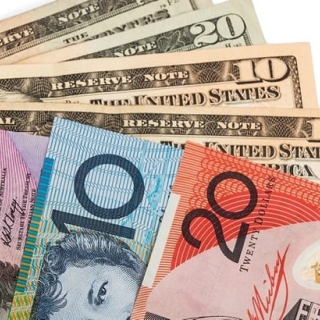


The Australian dollar slipped below $0.625 on Wednesday, reversing a two-day rally despite stronger-than-expected economic growth data. Australia's economy grew by 0.6% in the fourth quarter, up from 0.3% in the previous quarter and surpassing market expectations of 0.5%.
On the monetary policy front, RBA Deputy Governor Andrew Hauser noted that the central bank is closely monitoring the impact of the escalating global trade war on domestic inflation.
He emphasized that it's too early to declare victory over inflation and called for a cautious approach to further interest rate cuts.
However, minutes from the RBA's February meeting indicated that policymakers are increasingly focused on downside risks to the economy, suggesting a more dovish stance.
Externally, the Aussie faced pressure from trade concerns after new US tariffs on Canada, Mexico, and China took effect on Tuesday, prompting retaliatory measures from those countries.
Source: Trading Economics
The Australian dollar (AUD) held strong at the start of the week after strong Australian inflation data, while the US dollar weakened as market sentiment grew cautious due to the US-Greenland dispute....
The Australian Dollar is the best performer among major currencies in an otherwise calm start tobe the year. The Aussie appreciates nearly 0.5% against the US Dollar in the daily chart, so far, buoyed...
The Australian Dollar (AUD) continued to strengthen against the US Dollar (USD) on Wednesday, posting gains for the third consecutive day. The AUD's strength was driven by the release of the Reserve B...
The AUD/USD currency pair is currently in a bullish consolidation phase, a brief pause in its uptrend, and is hovering around the 0.6600 level during the Asian session on Friday (December 5th). This l...
The Australian Dollar (AUD) rose and reached a three-week high against the US Dollar (USD) during Wednesday's Asian session. This rise occurred despite less-than-satisfactory Australian economic data....
Gold prices briefly caused a stir after hitting a new record, but then slowed. The main trigger: US President Donald Trump withheld the threat of tariffs on Europe and claimed there was a "framework" for a future agreement on Greenland. This calmer...
Oil prices were little changed in Asian trading on Thursday after US President Donald Trump backed down from a threat to impose tariffs on European countries over Greenland. This decision helped ease geopolitical tensions and improve market...
The Nikkei 225 Index climbed 1.73% to close at 53,689, while the broader Topix Index rose 0.74% to 3,616 on Thursday, snapping a five-day losing streak as Japanese shares were lifted by a strong rally in chip and artificial intelligence related...